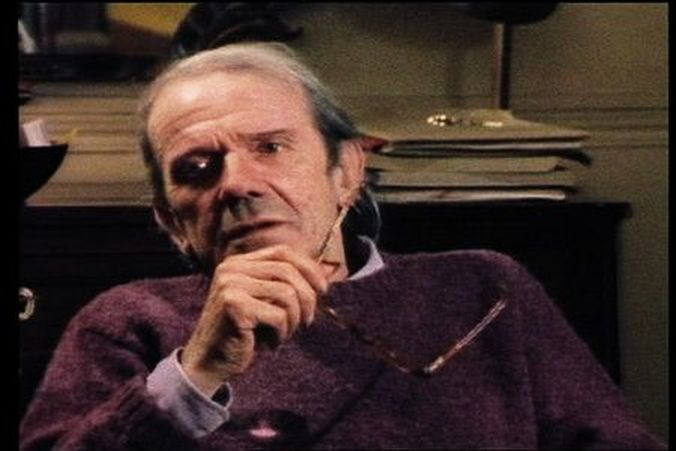|
“What does it mean to have an idea in cinema? If one makes cinema, or if one wants to make cinema, what is it to have an idea, specifically at the moment that one says ‘I have an idea.'” French philosopher Gilles Deleuze (1925-1995) was one of the most original and influential thinkers of the latter half of the twentieth century. He was likewise one of the main thinkers to genuinely consider the nature, structures and significance of cinema. In his later years, Deleuze published two books on the theme, Cinema 1: The Movement-Image and Cinema 2: The Time-Image, both of which now remain as focal messages in the Philosophy of Film. What is the Creative Act? I would also like to ask a few questions of my own. Ask you a few and ask myself a few. They would be of the type: What do you do exactly, when you do cinema? And what do I do when I do or hope to do philosophy? I could ask the question a different way. What does it mean to have an idea in cinema? If someone does or wants to do cinema, what does it mean to have an idea? What happens when you say: "Hey, I have an idea?" Because, on the one hand, everyone knows that having an idea is a rare event, it is a kind of celebration, not very common. And then, on the other hand, having an idea is not something general. No one has an idea in general. An idea─like the one who has the idea—is already dedicated to a particular field. Sometimes it is an idea in panting, or an idea in a novel, or an idea in philosophy or an idea in science. And obviously the same person won't have all of those ideas. Ideas have to be treated like potentials already engaged in one mode of expression or another and inseparable from the mode of expression, such that I cannot say that I have an idea in general. Depending on the techniques I am familiar with, I can have an idea in a certain domain, an idea in cinema or an idea in philosophy. I'll go back to the principle that I do philosophy and you do cinema. Once that is settled, it would be too easy to say that since philosophy is ready to think about anything, why couldn't it think about cinema? A stupid question. Philosophy is not made to think about anything. Treating philosophy as the power to "think about" seems to be giving it a great deal, but it in fact takes everything away from it. No one needs philosophy to think. The only people capable of thinking effectively about cinema are the filmmakers and film critics or those who love cinema. Those people don't need philosophy to think about film. The idea that mathematicians need philosophy to think about mathematics is comical. If philosophy had to be used to think about something, it would have no reason to exist. If philosophy exists, it is because it has its own content. It's very simple: philosophy is a discipline that is just as inventive, just as creative as any other discipline, and it consists in creating or inventing concepts, Concepts do not exist ready-made in a kind of heaven waiting for some philosopher to come grab them. Concepts have to be produced. Of course, you can't just make them like that. You don't say one day, "Hey, I am going to invent this concept," no more than a painter says "Hey, I'm going to make a painting like this" or a filmmaker, "Hey, I'm going to make this film!" There has to be a necessity, in philosophy and elsewhere; otherwise there is nothing. A creator is not a preacher working for the fun of it. A creator only does what he or she absolutely needs to do. It remains to be said that this necessity─which is a very complex thing, if it exists─means that a philosopher (and here I at least know what they deal with) proposes to invent, to create concepts and not to get involved with thinking, even about cinema. I say that I do philosophy, that I try to invent concepts. If I ask, those of you who do cinema, what do you do? You do not invent concepts—that is not your concern—but blocks of movement / duration. Someone who makes a block of movement / duration might be doing cinema. This has nothing to do with invoking a story or rejecting it. Everything has a story. Philosophy also tells stories. Stories with concepts. Cinema tells stories with blocks of movement / duration. Painting invents an entirely different type of block. They are not blocks of concepts or blocks of movement / duration, but blocks of lines / colors. Music invents another type of blocks that are just as specific. And alongside all of that, science is no less creative. I do not see much opposition between the sciences and the arts. Two Regimes of Madness, Texts and Interviews 1975-1995 Gilles Deleuze (1925-1995), edited by David Lapoujade, translated by Ames Hodges and Mike Taormina The critical theorists continues to note that “everyone knows that to have an idea is a rare event, it occurs infrequently. To have an idea is a sort of celebration.” Watch below:
0 Comments
Leave a Reply. |
|

 RSS Feed
RSS Feed
